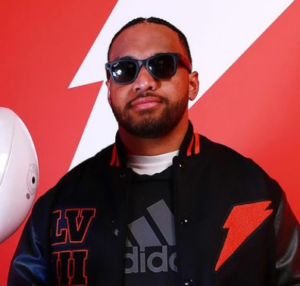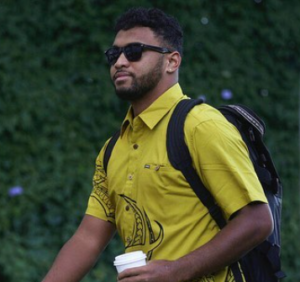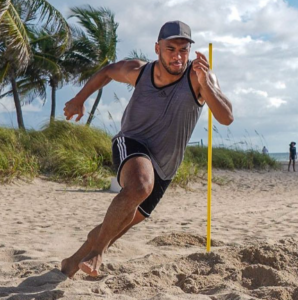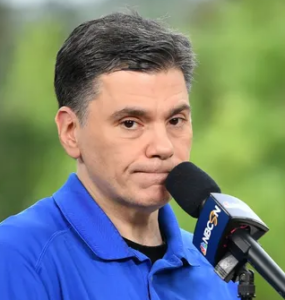Despite the daunting reality of his concussion history, Tagovailoa has shown impressive resilience. He continues to lead his team, inspiring fellow athletes and fans with his strength and commitment to the sport he loves
His return after multiple concussions serves as a testament to his resolve, though it also serves as a reminder of the physical costs of professional football.
In the face of growing concerns about his long-term health, Tagovailoa remains focused on the present. His commitment to the game and his team demonstrates his passion for football, even as fans and analysts worry about the impact of repeated injuries.
Tua Tagovailoa’s journey in the NFL has been marked by impressive talent, perseverance, and significant obstacles.
His three concussions over five seasons underscore the risk that athletes face in high-contact sports like football. As the Dolphins navigate the season and aim for a playoff berth, they must also consider Tagovailoa’s long-term health and future with the team.
Balancing these priorities will be essential to their success and to Tua’s well-being, both on and off the field.

Also Read: Tua Tagovailoa’s Wife Stands Up: Bold Response to Racism Targeting Raheem Mostert’s Spouse
Table of Contents
Tua Tagovailoa: Concussion History
A Looming Concern for the NFL
Tua Tagovailoa’s career has seen a mix of remarkable plays and troubling injuries, especially concussions.1
The Miami Dolphins quarterback, known for his dynamic plays, is under scrutiny for repeated head injuries, which are sparking serious health concerns among fans and analysts alike.
His latest head injury in Week 2 of the 2024 season has only added to this tension, as he missed four games while recovering.
Despite his return to the field, Tagovailoa’s ability to avoid future concussions and prioritize his long-term health is now more crucial than ever.
In the 2022 season, Tagovailoa suffered two concussions that served as an early indicator of the risks he faces. The first incident, a brutal hit that forced him out of the game, showed just how vulnerable the young quarterback was to head trauma.
However, it was the second concussion shortly afterward that worried fans and analysts alike. Many questioned the handling of his recovery and raised concerns about the NFL’s concussion protocols.
After these incidents, Tagovailoa became the face of the NFL’s ongoing concussion problem.
The league has since reviewed and amended its protocols to prioritize player safety, but Tagovailoa’s injuries left an indelible mark on fans’ perceptions of the game and its long-term impact on players.
Back at it with the boys 🤙🏾 pic.twitter.com/f9kWHB8y6G
— Tua. T 🇦🇸 (@Tua) May 24, 2024
Week 2 of the 2024 Season: Another Frightening Concussion
In the second week of the 2024 season, Tagovailoa once again suffered a significant head injury.
While attempting a routine play, he took a hard hit that left him sidelined and ultimately placed him on the injured reserve for four games.
This third concussion in three years had many wondering whether Tagovailoa should consider his future in the NFL, given the long-term risks associated with repeated head trauma.
The impact of multiple concussions goes beyond missing games. Tagovailoa’s recent injury serves as a stark reminder of the cumulative risks that concussions pose.
For players who endure these repeated blows to the head, the chances of developing Chronic Traumatic Encephalopathy (CTE) and other neurological issues increase with each incident.

Tua Tagovailoa: Return to Play
A Relieved Yet Concerned Fan Base
After a month away from the field, Tagovailoa returned, much to the relief of Dolphins fans. He looked strong and focused, but his past concussions were impossible to forget.2
The Dolphins have high hopes this season, and Tagovailoa’s skills are central to their success, yet fans are torn between cheering for his recovery and worrying about the toll these head injuries are taking on him.
The repeated trauma has led some to speculate that Tagovailoa could eventually be forced to retire if concussions continue to plague his career.
While the quarterback has shown resilience, the specter of injury looms, casting doubts on his ability to sustain a long-term career in the league.
The Controversial Tackle Attempt: Fans’ Reactions and Concerns
Tagovailoa reignited concerns in Week 5 of 2024 when he attempted to tackle Rams linebacker Christian Rozeboom after an interception.
Tagovailoa went headfirst in a risky dive, prompting fans and commentators to question his decision-making. After three concussions, risking a head-on tackle was widely seen as reckless and unnecessary.
Social media erupted in response, with some fans questioning if Tagovailoa fully understood the severity of his injury history. Others speculated whether the repeated concussions had impaired his judgment.
Comments ranged from concern to outright criticism, with fans stating, “The CTE has taken over, let him do whatever he wants,” and “What the hell is wrong with him? Does he enjoy being concussed?”
NFL Concussion Protocols: Are They Enough?
The NFL has faced intense criticism over its handling of concussions and the protection of players’ long-term health.
Recent updates to the league’s concussion protocols aim to reduce risks, mandating stricter assessments for players suspected of head injuries. However, the repeated head injuries of players like Tagovailoa continue to question the protocol’s effectiveness.
Some experts believe the NFL should implement even stricter protocols for players with multiple concussions. In cases like Tagovailoa’s, where the history of head trauma is significant, a mandatory extended recovery period might reduce future risks.
Others advocate for better protective equipment or limiting certain plays to minimize head impacts. The NFL has made strides in recent years, but cases like Tagovailoa’s show there is still much room for improvement.

Tua Tagovailoa: Cumulative Impact of Concussions
How Much is Too Much?
Medical research consistently shows that concussions have a cumulative effect, meaning that each subsequent head injury increases the risk of long-term neurological damage.3
This is particularly concerning for young athletes like Tagovailoa, whose career could be cut short if he continues to experience head trauma. The effects can include memory loss, impaired judgment, and even mental health issues like depression and anxiety.
Studies suggest that repeated concussions can lead to conditions such as CTE, a degenerative brain disease commonly found in athletes, especially those in contact sports like football.
This condition, which can only be diagnosed posthumously, has been linked to symptoms including aggression, confusion, and even suicidal tendencies.
Tagovailoa’s case is a glaring reminder of the potential long-term health risks players face, and it underscores the importance of prioritizing player health over short-term success.
Can He Avoid Further Head Injuries?
- As Tagovailoa continues the 2024 season, the key question remains: Can he protect himself and avoid further head injuries? His playing style, while effective, involves frequent contact with defenders, which places him at high risk.
- Dolphins’ coaching staff may need to work closely with him to modify his approach, focusing on quick releases, strategic positioning, and limiting risky plays.
- Moreover, Tagovailoa may need to evaluate how his approach to the game could be adapted to reduce risk.
- Quarterbacks who can avoid high-contact situations are more likely to have long, healthy careers. As the team rallies behind him, both Tagovailoa and his coaches must find a balance between his competitive spirit and prioritizing his safety.
- The repeated concussions suffered by Tagovailoa have sparked reactions from a wide spectrum of NFL fans and health advocates.
- Some fans express sympathy and admiration for his determination to play despite the risks. Others, however, call for a change in league policies and even suggest that Tagovailoa consider retirement for his own well-being.
- Health advocates emphasize the importance of mental and neurological health in professional sports.
- Some have called for stricter guidelines on when a player can return to play after a concussion, while others advocate for increased research funding to understand better the long-term effects of repeated head trauma in athletes.

Also Read: Tua Tagovailoa’s Wife Annah Shares Intimate Moments from Ace’s 2nd Birthday with Special Guests
Tua Tagovailoa: Career
Tua Tagovailoa, the Miami Dolphins’ talented quarterback, has faced numerous obstacles since joining the NFL, particularly concerning his history with concussions.
As he progresses into his fifth season, the issue of head injuries looms large over his career. Fans, medical professionals, and even the Dolphins organization are concerned about the long-term effects of these concussions on both his playing future and health.
In light of his recent injuries and Miami’s significant financial commitment to him, understanding the impact of these injuries on his career and the Dolphins’ playoff hopes is more relevant than ever.
Early Career: From Alabama to the NFL
Tagovailoa was a standout player during his college career at Alabama, where he displayed remarkable skills as a passer and decision-maker.
His impressive college stats led to a top draft pick in the 2020 NFL Draft by the Miami Dolphins, who believed he could bring a new level of success to their team.
However, even in college, Tua had dealt with several injuries, including a severe hip injury, which added to concerns about his durability. Nonetheless, his potential seemed worth the risk.
First Concussion: The 2022 Season
In the 2022 NFL season, Tagovailoa suffered his first reported concussion while playing against the Buffalo Bills.
This incident was highly publicized, as it occurred just days after he showed signs of head trauma in a game against the Cincinnati Bengals.
Although he was cleared to play, questions about the NFL’s concussion protocol and player safety were immediately raised, and Tua’s health was under intense scrutiny. Many fans and analysts expressed concern, arguing that he should have been sidelined sooner.
The 2022 season brought about significant policy changes in the NFL regarding concussion protocols. The handling of Tagovailoa’s injuries became a catalyst for stricter measures, which now require independent evaluations for suspected head injuries.
Second Concussion: Another Blow in 2022
Later in the 2022 season, Tagovailoa suffered a second confirmed concussion. This time, the impact on his career and health became even more apparent, as he was sidelined for an extended period.
With two concussions in a single season, Tua’s future in the NFL seemed uncertain. Medical experts warned of the potential long-term effects on cognitive function and memory, especially if he continued to experience head trauma.
The Dolphins faced immense pressure from fans and media, leading to speculation about whether Tagovailoa should consider retiring early. Despite this, he returned to the field, showing resilience and determination to play the game he loved.

Tua Tagovailoa: On-Field Impact
More than Just a Quarterback
Despite his injury history, Tagovailoa has proven his worth as a leader on the field.
His recent performance against the Rams, completing 20 of 28 passes for 207 yards, one touchdown, and one interception, was instrumental in securing a 23-15 victory.
The Dolphins rely heavily on his skill set and ability to manage games, and his absence would be difficult to replace.
His presence also gives the Dolphins a competitive edge. With a 3-6 record, the team still holds a chance to make the playoffs, even if only as a wild card.
Currently, the 7th-seed Denver Broncos hold a 5-5 record, so if Tua can stay healthy and lead the team effectively, there is hope for a postseason run. The Dolphins’ fortunes seem directly tied to Tagovailoa’s health and ability to perform consistently.
Tua Tagovailoa: Paid Partnership
Tua Tagovailoa’s paid partnership with AutoNation, America’s most admired automotive retailer.
Understanding the Risks: Long-Term Effects of Concussions
Concussions are known to have serious long-term effects, especially when repeated over an athlete’s career.
Medical experts have linked chronic traumatic encephalopathy (CTE) and other neurological conditions to repeated head trauma, raising serious concerns about Tagovailoa’s well-being.
Former players like Junior Seau and Aaron Hernandez are high-profile examples of individuals affected by CTE, adding a tragic perspective to the issue.
In Tua’s case, his three known concussions within a relatively short career span are troubling. Doctors and researchers warn that with each additional concussion, the risk of permanent damage increases.
Symptoms such as memory loss, mood swings, and diminished cognitive ability can manifest years after an athlete retires, making it a pressing concern for current NFL players like Tagovailoa.
Also Read: Tua Tagovailoa: Is He Christian or Catholic? Religion, Heritage, Family And More Explored




